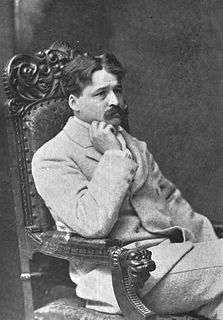A Quote by Samuel Johnson
A generous and elevated mind is distinguished by nothing more certainly than an eminent degree of curiosity.
Related Quotes
Children, be curious. Nothing is worse (I know it) than when curiosity stops. Nothing is more repressive than the repression of curiosity. Curiosity begets love. It weds us to the world. It's part of our perverse, madcap love for this impossible planet we inhabit. People die when curiosity goes. People have to find out, people have to know.
It is necessary to guard ourselves from thinking that the practice of the scientific method enlarges the powers of the human mind. Nothing is more flatly contradicted by experience than the belief that a man distinguished in one or even more departments of science, is more likely to think sensibly about ordinary affairs than anyone else.
Poetry operates by raising our curiosity, engaging the mind by degrees to take an interest in the event, keeping that event suspended, and surprising at last with an unexpected catastrophe. The painter's art is more confined, and has nothing that corresponds with, or perhaps is equivalent to, this power and advantage of leading the mind on, till attention is totally engaged. What is done by Painting, must be done at one blow; curiosity has received at once all the satisfaction it can ever have.
Plotinus, when he thinks about mind or intellect, the Greek word is 'nous', he thinks about something that's very different, it's much more elevated and special, more abstract, you might say more philosophical than the very broad range of mental events that we talk about in contemporary philosophy of mind.
Life and death are nothing but the mind. Years, months, days, and hours are nothing but the mind. Dreams, illusions, and mirages are nothing but the mind. The bubbles of water and the flames of fire are nothing but the mind. The flowers of the spring and the moon of the autumn are nothing but the mind. Confusions and dangers are nothing but the mind.






































